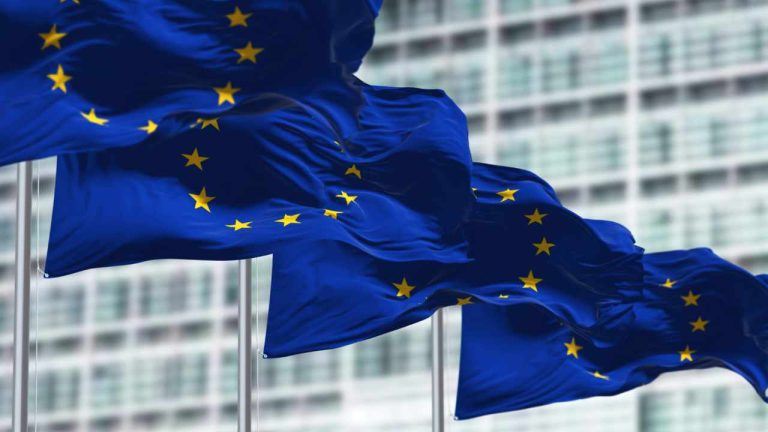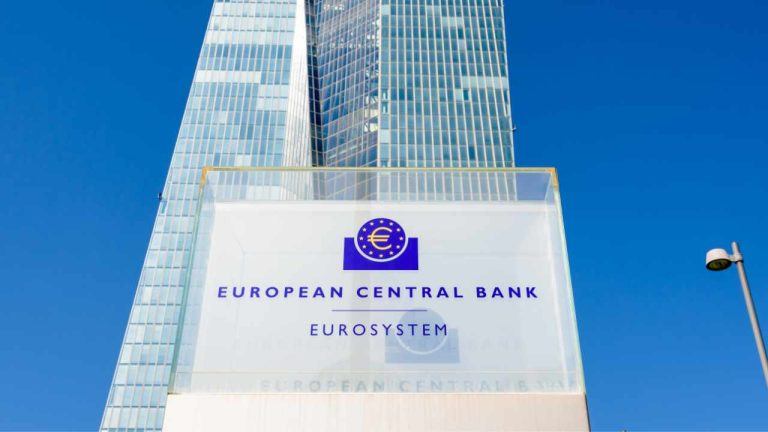
At the heart of the findings are the “blue check” verification systems and X’s alleged obfuscation of data.
The European Union released documents on July 12 indicating that Elon Musk’s X.com has been preliminarily found to be in breach of the Digital Services Act (DSA).
According to the EU’s preliminary findings, X violated the DSA on three separate counts and faces fines of “up to 6% of the total worldwide annual turnover of the provider.”
Per documents published by the European Commission:

The central bank has been experimenting with multiparty computation, which could support the entire European economy in the future.
Central banks worldwide are increasingly exploring blockchain technology adoption, with the European Central Bank (ECB) being the latest example.
The ECB recently completed a blockchain experiment for its central bank digital currency (CBDC) with Zama, according to the firm's chief academic officer, Nigel Smart.
He said during a panel discussion at FHE Summit 2024:
 Circle has announced that its stablecoins, USDC and EURC, are now compliant with the EU’s Markets in Crypto Assets (MiCA) regulation. This compliance allows Circle to natively issue these stablecoins to European customers. The company is also authorized as an e-money issuer in France, which now serves as its European headquarters. Circle’s Stablecoins Achieve EU […]
Circle has announced that its stablecoins, USDC and EURC, are now compliant with the EU’s Markets in Crypto Assets (MiCA) regulation. This compliance allows Circle to natively issue these stablecoins to European customers. The company is also authorized as an e-money issuer in France, which now serves as its European headquarters. Circle’s Stablecoins Achieve EU […] The European Central Bank (ECB) has published its first progress report on the digital euro preparation phase, highlighting key design features and ongoing developments. The report emphasizes high privacy standards for both online and offline payments, aiming to provide users with a cash-like level of privacy. First Progress Report on the Digital Euro Preparation Phase […]
The European Central Bank (ECB) has published its first progress report on the digital euro preparation phase, highlighting key design features and ongoing developments. The report emphasizes high privacy standards for both online and offline payments, aiming to provide users with a cash-like level of privacy. First Progress Report on the Digital Euro Preparation Phase […] In the rapidly evolving landscape of digital finance, the emergence of crypto assets has introduced unprecedented challenges as well as opportunities for regulators who provide proactive frameworks across the globe. The European Union is the largest government body that has done so through the Markets in Crypto-Assets Regulation (MiCAR), however, it finds itself at a […]
In the rapidly evolving landscape of digital finance, the emergence of crypto assets has introduced unprecedented challenges as well as opportunities for regulators who provide proactive frameworks across the globe. The European Union is the largest government body that has done so through the Markets in Crypto-Assets Regulation (MiCAR), however, it finds itself at a […]

A letter from Consensys states that the SEC’s approval of spot Ether exchange-traded funds indicated that it had “updated its position to classify ETH as a commodity and not a security,” but not everyone agrees.
The United States Securities and Exchange Commission’s (SEC) case to prove Ether is a security may not have been as strong as it let on. The SEC closed its investigation into whether Ether is a security on June 19.
Consensys lawyer Laura Brookover said there will be “no more protestations from the SEC that Ether is a security.” She said it was a reaction to being pushed to “lift the subpoenas on Consensys given their recent ETH [exchange-traded fund] rule change approvals predicated on ETH being a commodity.”
The letter from Consensys states that the SEC’s approval of spot Ether (ETH) exchange-traded funds (ETFs) indicated that it had “updated its position to classify Ether as a commodity and not a security.”

Apart from Uphold, other major crypto exchanges, including Binance, Kraken and OKX, also tweaked their stablecoin listing policies to comply with MiCA regulations.
Cryptocurrency exchange Uphold has sent a notice to its European users informing them that the platform will end support for six popular stablecoins from July 1. Uphold says it is delisting the stablecoins to align with the European Union’s Markets in Crypto-Assets Regulation (MiCA).
The six stablecoins are Tether (USDT), Dai (DAI), Frax Protocol (FRAX), Gemini dollar (GUSD), Pax dollar (USDP) and TrueUSD (TUSD). Users holding these stablecoins must convert them to a different cryptocurrency before June 28, after which the cryptocurrency exchange will automatically convert them into USD Coin (USDC).
MiCA was passed into law in May 2023 and went into partial effect in June 2023. The extensive EU crypto laws are expected to come into full force by the end of 2024.

The European elections have formed a new EU Parliament that will rule for the next five years.
The new European parliament is set to continue the European Union’s relatively supportive policies toward the cryptocurrency industry.
Last week, 185 million EU voters from 27 member states took part in the elections to choose the new European Parliament.
The European political arena has transformed thanks to a surge in representation from the far-right wing, the consolidation of the European People’s Party (EPP) and the decline of the Greens/European Free Alliance (Greens/EFA).

The European Banking Authority has introduced a series of technical standards and guidelines for token issuers as MiCA implementation moves forward.
The European Banking Authority (EBA) has released a comprehensive package of technical standards and guidelines under the Markets in Crypto-Assets (MiCA) regulation, providing regulatory guidance for asset-referenced tokens (ARTs) and e-money tokens (EMTs) across Europe.
The package covers six topics, from stress testing programs and asset reserves to recovery plans. Under MiCA, ARTs are tokens backed by assets like commodities, real estate, or a basket of different assets, while EMTs maintain a stable value by being pegged to fiat currencies and used for payments, like a stablecoin.
Specifically, the authority provides guidelines for token issuers, including the need for enough financial resources (own funds) to cover potential risks. It also creates parameters to determine if an issuer is facing a higher degree of risk, which should lead to an increase in own fund reserves.

The European elections have caused a stir, but several pro-crypto or crypto-supportive parties have gained seats.
From June 6 to 9, more than 185 million people from the European Union’s 27 member states voted for candidates to serve a five-year term in a new European Parliament, the legislative branch of the political bloc.
This pivotal event will shape the political direction of the EU for five years, and crypto and blockchain are no exception.
The election results are mixed: The Christian Democrats won 10 seats, while the Social Democrats hung on, losing only four seats, and the pro-business (and pro-crypto) Renew Europe Group lost 23 seats.